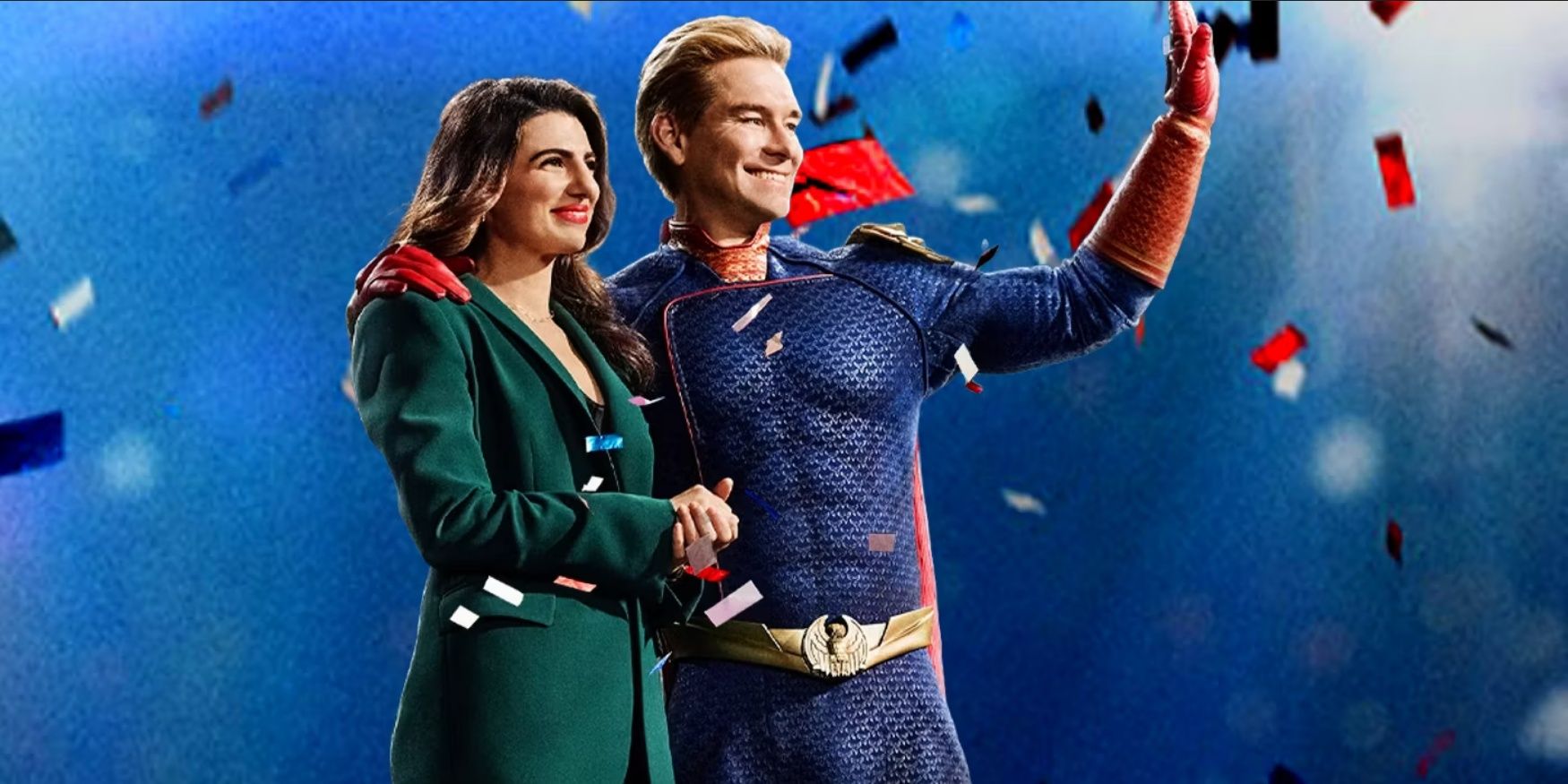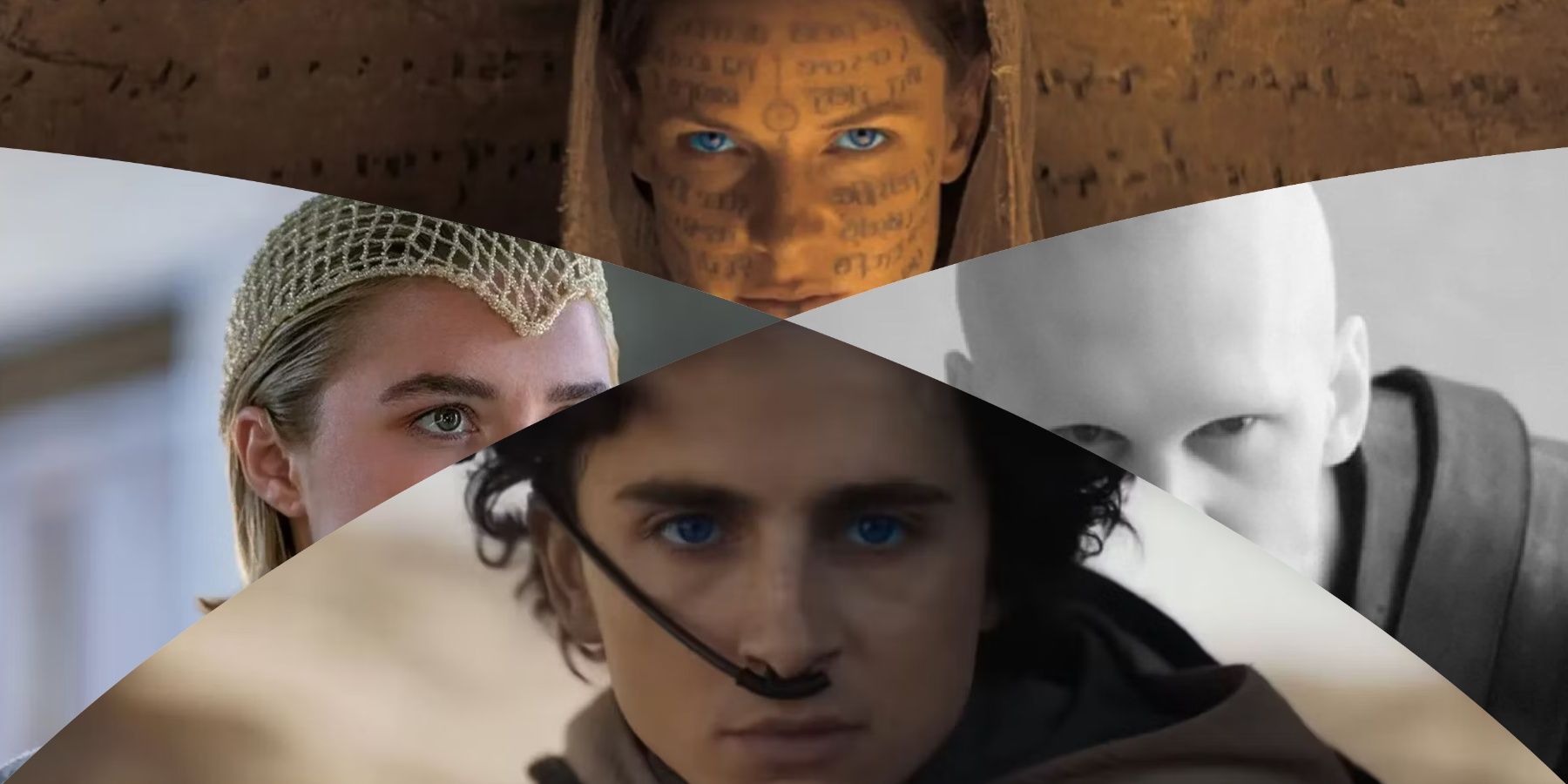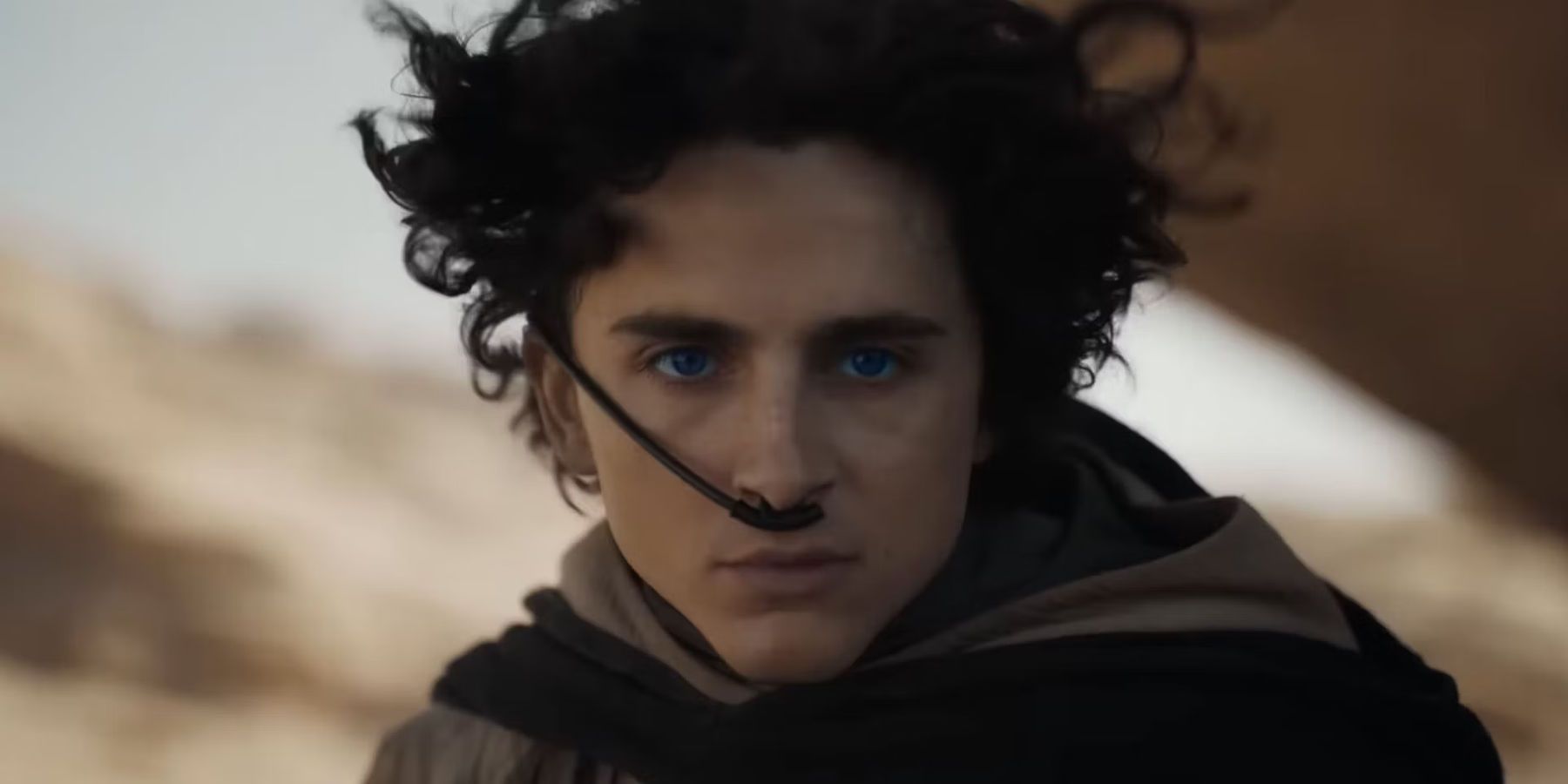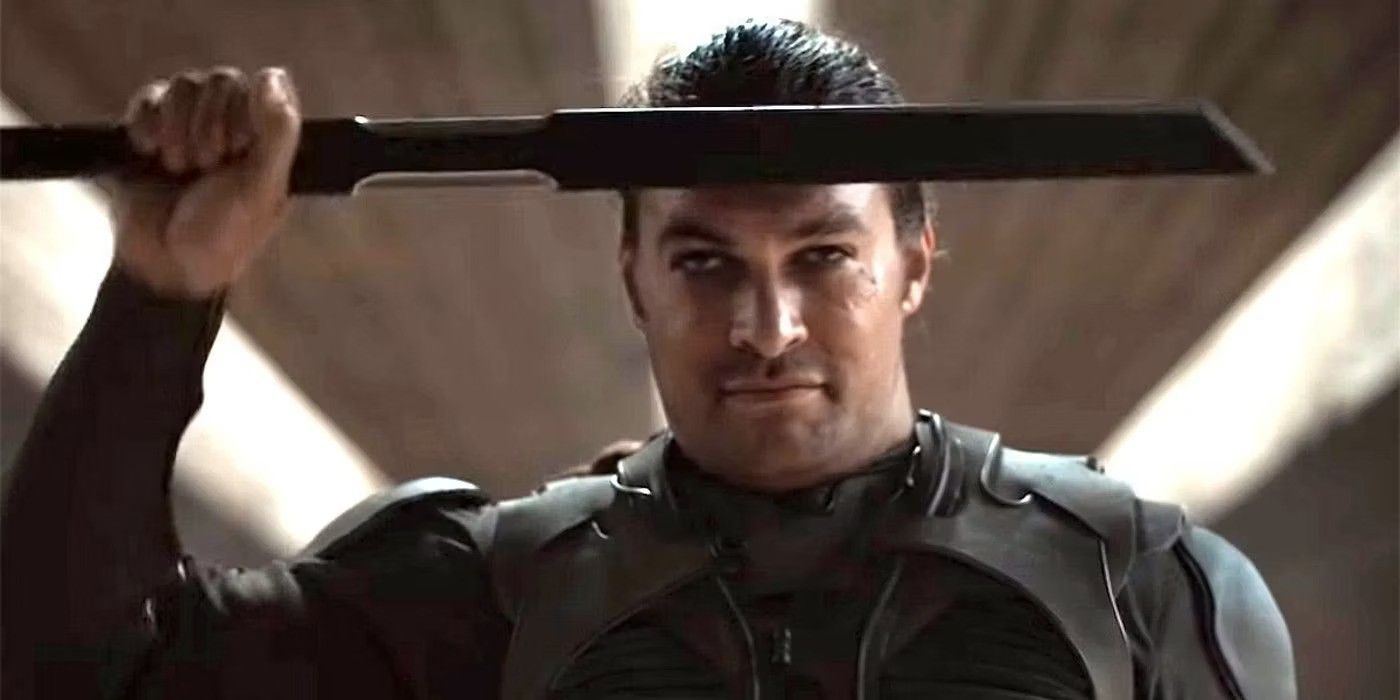Quick Links
Denis Villeneuve's Dune: Part Two hit theaters and became an instant hit with audiences. It follows Paul Atreides immediately after the events of Dune: Part One, as he and his mother Jessica (Rebecca Ferguson) join the ranks of the Fremen and avoid capture by the Harkonnens. Dune: Part Two further explores the betrayal that Baron Harkonnen and the Emperor orchestrated against Duke Atreides (Oscar Isaac).
Paul quickly gains enough trust from seitch leader Stilgar (Javier Bardem) and Chani (Zendaya) to be taught the ways of the Fremen. At first, Paul wants to help them liberate themselves from Harkonnen rule. However, his desires shift over the course of the film, and his sights eventually land on the Emperor's throne.
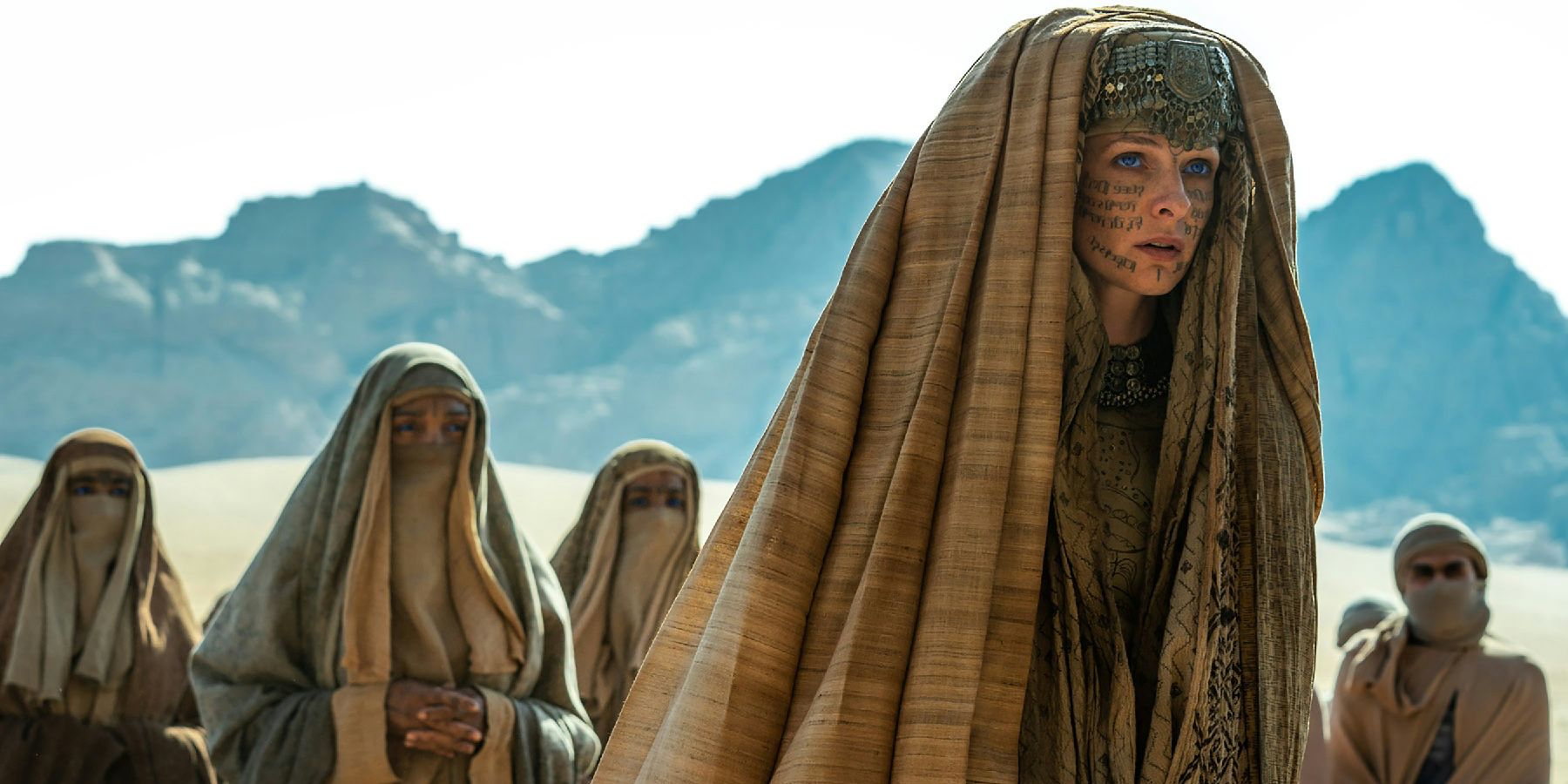
Dune: The Bene Gesserit, Explained
This order of women holds great power over the major houses of Dune. Just who are the Bene Gesserit "witches?"
Dune: Part Two Ending
After the events of Dune: Part One, any path Paul was to take would lead to war. If he chose to integrate into Fremen society, he would have to battle the Harkonnens, who wished to obliterate the Fremen. His other option was to accept his role as the Lisan al Gaib, go south, drink the Water of Life, and wage war against the Empire. Paul resisted as long as he could after visions showed the results of a galactic war, but he felt he had no other choice when Feyd Rautha (Austin Butler) obliterated the northern seitch.
Along with the full power of the Lisan al Gaib, the Atreides atomics — thanks to Gurney Halleck (Josh Brolin) — and the unwavering loyalty of the Fremen, Paul has everything he needs to exact his revenge on those who usurped his father. Stilgar, Paul's mentor and seitch leader, poured a great amount into Paul being the Lisan al Gaib. However, drinking the Water of Life gave Paul abilities that made it impossible to doubt he fulfilled the prophecy.
Paul sent word of his survival to Emperor Shaddam IV (Christopher Walken), knowing it would lure him to Arrakis in an attempt to finish the job. This gave Paul the opportunity he needed to overthrow the Emperor. Paul was never anything if not reasonable, because he was willing to keep the Corrin bloodline thriving by taking the Emperor's daughter, Princess Irulan (Florence Pugh), as his bride. Naturally, the Emperor and his daughter were reluctant. This forced the Emperor to choose Feyd Rautha as his champion to battle Paul in a one-on-one duel to the death.
Having killed Baron Vladimir Harkonnen (Stellan Skarsgård) upon first confronting the Emperor, the death of Feyd Rautha left no immediate Harkonnen heir to lead — except, that is, Paul. Paul's visions showed him a great many things, including the birth of his mother and her lineage. It turns out that her father was the Baron himself. Not only does an Atreides end up on the Emperor's throne, but a Harkonnen as well.
Dune’s Overall Story is a Cautionary Tale
One of the genius aspects of Frank Herbert's Dune novel is that it's a hero's journey flipped on its head. It's easy to see Paul as a hero, especially if one only watches Dune: Part One. The Harkonnens are brutal people with little compassion, and the Emperor's plot to overthrow House Atreides is sinister at the very least.
However, as a viewer sits through Dune: Part Two, it grows increasingly easy to see that Paul might not have the best intentions for those around him. At first, he refuses to fulfill the Lisan al Gaib prophecy because his visions show it leads to famine and war. Yet, he ultimately chooses to avenge House Atreides and put his own needs before the indigenous people of Arrakis. Chani sees this, which is why she ultimately chooses to leave him. In fact, Villeneuve changed Chani's character to help the audience see that Paul was more Darth Vader than Luke Skywalker.
Beware Messianic Figures
While Denis Villeneuve has expressed interest in making a third Dune film, which would naturally be an adaptation of Dune Messiah, that might not show the extent of the repercussions of Paul's actions. In the novel, the Fremen fight by Paul's side because they believe him to be their savior. Paul, on the other hand, knows that he's not their messiah, and that the whole prophecy is a story orchestrated by the Bene Gesserit. Still, he takes advantage at first to survive and, lastly, to exact revenge.
In an interview with Inverse, Villeneuve says as much:
For [Herbert], the book was a warning about charismatic leaders, and he wanted Paul to be more perceived as a dark figure.
This led to Herbert writing Dune Messiah to show his readers that Paul wasn't the hero they thought he was. Prophecies exist in every real-life religion, and it's easy for those with unwavering faith to see characteristics of a messianic figure in certain people.
What Happens After Dune: Part Two?
Dune Novels | |
|---|---|
Creator | Frank Herbert |
Book 1 | Dune (1965) |
Book 2 | Dune Messiah (1969) |
Book 3 | Children of Dune (1976) |
Book 4 | God Emperor Dune (1981) |
Book 5 | Heretics of Dune (1984) |
Book 6 | Chapterhouse: Dune (1985) |
Herbert went on to write five sequel books after completing Dune, giving Hollywood plenty of material to pull from for future adaptations. If audiences are lucky, Villeneuve will be the one to adapt all of them. However, each novel gets progressively more bizarre. Characters come back to life through the advances of genetic technology, there's the revelation that the Spacing Guild is highly addicted to Spice Melange, and an important character becomes a human/worm hybrid.
Dune Messiah, the story that takes place after Dune, highlights the shape of the galaxy 12 years after Paul and the Fremen left Arrakis to fight the other great houses. However, that doesn't mean everyone is happy, as there are plenty of major leaders who wish to dethrone Paul. A cinematic adaptation would have to adjust to some of the liberties Villeneuve took with Dune: Part Two, especially in regard to Chani and Paul's relationship.
The marriage between Paul and Princess Irulan is a significant focus of Dune Messiah, but their relationship is strictly out of convenience. Paul still loves Chani, and the two remain an item in the sequel, which goes against the implications portrayed in Dune: Part Two.
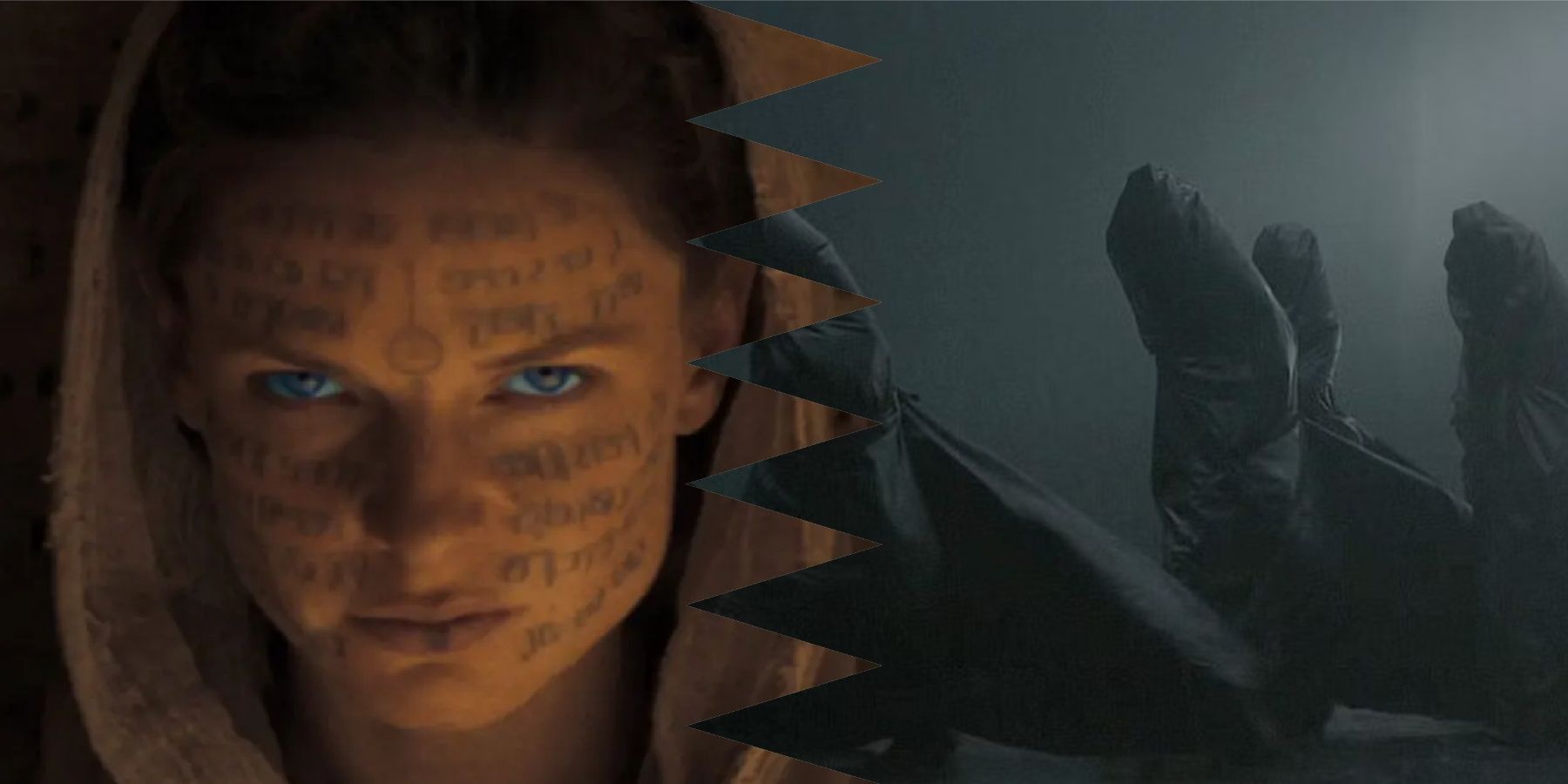
Dune: Prophecy, Explained
The Dune universe is expanding, with a television series coming to Max this fall.

